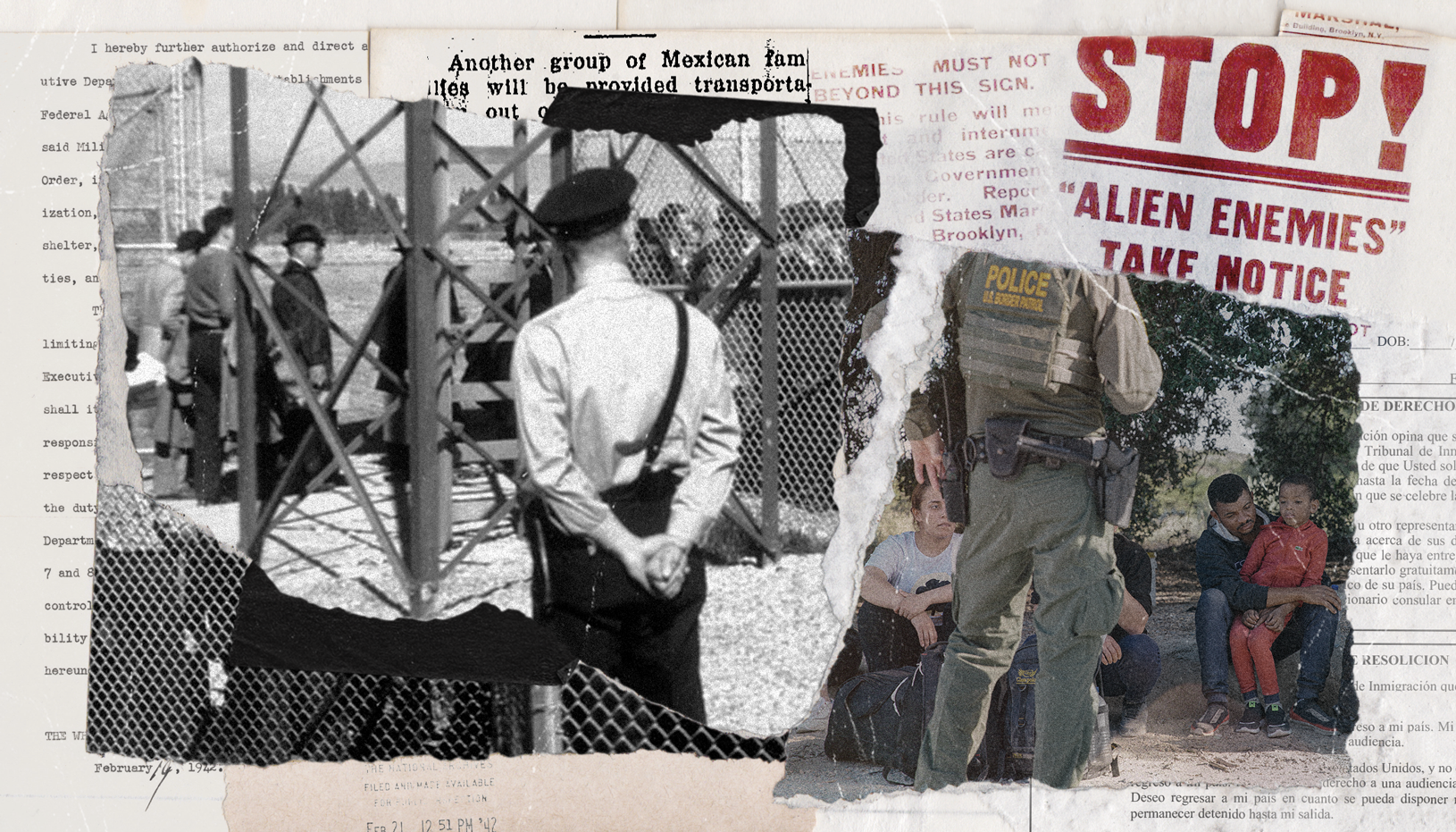When anti-immigrant groups use the word “invasion” to describe the arrival of migrants at the U.S. border, they aren’t just tapping into a xenophobic history of hostility toward immigrants or white nationalist conspiracy theories about demographic replacement.
They aren’t just trying to call to mind a lawless warzone of violence and criminality — never mind that immigrants are less likely to commit crimes than citizens.
These groups use the word “invasion” to suggest that drastic, emergency action needs to be taken to protect U.S. territory.
Throughout his election campaign this year, former president Donald Trump has brought up the idea of mass deportations, by and large of Latino immigrants. And he has promised to invoke a dangerous and antiquated law that could give the executive office all the power it needs to deport noncitizens — including permanent resident and refugees — without due process, checks from the other branches, or any safeguards to protect people’s civil rights and liberties.
This law is the Alien Enemies Act, an authority that can be invoked only during times of war, invasion, or predatory incursion. As a new Brennan Center report makes clear, this power is already perilously overbroad and blatantly discriminatory. And using it during peacetime would be a staggering abuse. It should be eliminated.
Under existing interpretations of the law, the Alien Enemies Act allows the president to detain and deport “all” unnaturalized immigrants from a hostile nation, regardless of their legal status, their conduct, or how long they’ve been in the United States. It has even been used to target people who were born in a neutral country but whose parents were from the hostile nation. The law is not only dangerous in the wrong hands, but also completely unnecessary. The United States today has other means of protecting itself from foreign sabotage or espionage in wartime — means that do not involve unjustly persecuting people because of where they come from or because of their ethnic identity.
The Alien Enemies Act has been invoked only three times in the two centuries since its passage, most notoriously as a justification for Japanese internment during World War II. Its past use has led to apologies from lawmakers, reparations to victims, and calls to get a law that represents some of the most shameful episodes of U.S. history off the books entirely.
Now, anti-immigrant politicians want to use this wartime authority as a turbo-charged deportation power in peacetime, on the pretext that they are protecting the United States from an “invasion” perpetrated by Mexican cartels engaged in human smuggling and drug trafficking.
Whether the courts would prevent the weaponization of the law in peacetime is unclear, because judges often defer to the president or Congress on “political questions” implicating national security. In addition, the Alien Enemies Act has not been tested in court since it was last invoked during World War II.
The Brennan Center report offers legal arguments for challenging the law itself, as well as challenging any abuse of the law to enact mass deportations in the absence of war. But Congress could also act and repeal the law well before any president tries to use or abuse it.
The Alien Enemies Act is unjust, racist, and ineffective. It’s also, given how some groups look to wield the law against immigrants, broad enough to invite abuse during peacetime.
This law was shameful and dangerous back when it was created 200 years ago. It’s even more so today. It must be repealed or overturned.




